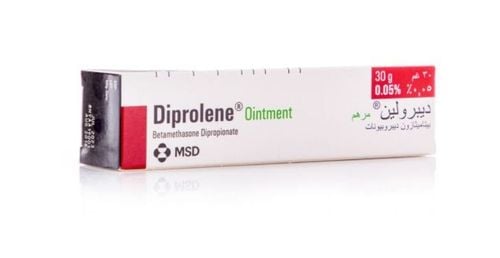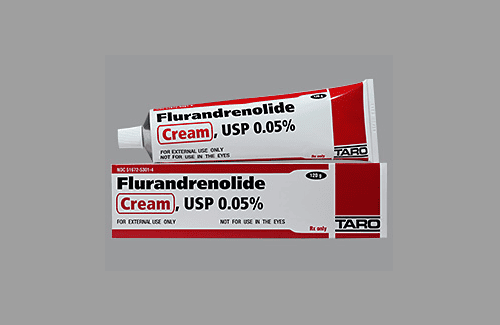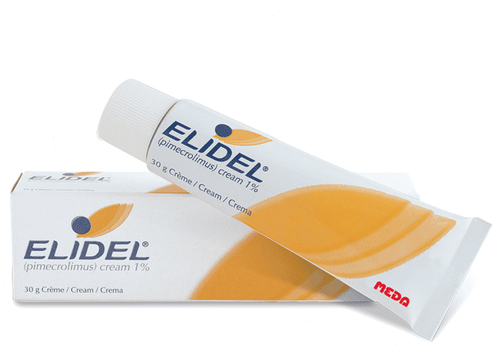This is an automatically translated article.
Mibeonate-n topical has the main active ingredients Betamethasone dipropionate and Neomycin sulfate, effective in the treatment of secondary bacterial infections, atopic dermatitis, atopic dermatitis, seborrheic dermatitis, hypertrophy of the skin. lichen planus, eczema, discoid lupus erythematosus, erythema multiforme... So how should the drug be used to be effective and safe?
1. Uses of the drug Mibeonate-N
Mibeonate is indicated in the following cases:
Secondary bacterial infection. Collagen diseases such as dermatomyositis, scleroderma, systemic lupus erythematosus. Localized infiltrative lesions, eczema, lichenoid hypertrophy, photodermatitis, seborrheic dermatitis, contact dermatitis, atopic dermatitis, exfoliative dermatitis, psoriatic rash, keloids, erythema variety, discoid lupus erythematosus.
2. Dosage and how to use Mibeonate-N
For topical use, treatment should not be continued for more than 7 days without medical supervision. Adults and children >2 years: Apply a small amount to the area to be treated 2-3 times a day until improvement. After that, it can be maintained once a day or less often. Mibeonate-n topical is suitable for use in children (2 years of age and older) at the same dosage as adults. Dosage should not exceed 5 days. The potential for increased absorption exists in very young children, therefore this medicinal product is not recommended for use in neonates and infants under 2 years of age. Dosage in renal failure. Patients with impaired renal function require a dose reduction. Notes on overdosage or missed dose:
Betamethasone dipropionate overdose:
Acute overdose is unlikely unless prolonged high doses are used. In the case of chronic toxicity, the dose should be gradually reduced as directed by the physician, and the electrolyte imbalance should be treated if necessary. Neomycin sulfate:
When there are signs or symptoms of ototoxicity and nephrotoxicity, the product should be discontinued and the patient's general condition, hearing, renal and neuromuscular function should be monitored. Blood levels of neomycin sulfate should also be determined. Hemodialysis may reduce the serum concentration of neomycin sulfate. Missed dose: If it is not yet time for the next dose, take the missed dose immediately. When it's time for your next dose, skip the missed dose and take your next dose as usual. Do not take a double dose to make up for a missed dose.
3. Contraindications when using Mibeonate-N
Hypersensitivity Rosacea. Skin tags Perioral dermatitis Primary viral skin infections: herpes simplex, chickenpox . Not indicated for use in the treatment of primary bacterial skin lesions caused by fungal and bacterial infections; primary or secondary yeast infections; or secondary bacterial infections caused by species of Pseudomonas or Proteus. This medicinal product is not recommended for use in infants and infants (up to 2 years of age). Preparations containing neomycin should not be used to treat otitis externa when perforating the ear, because of the risk of ototoxicity. Apply the drug on large areas of skin for a long time, open wounds.
4. Undesirable effects of the drug Mibeonate-N
Local side effects: burning or stinging sensation, itching, peeling, pus discharge, folliculitis, hair growth, acne-like rash.
Systemic side effects: when used in large amounts or for a long time on large areas of skin:
Metabolism: water retention, sodium retention, potassium loss. Endocrine: menstrual irregularities, impaired glucose tolerance, Cushing's syndrome, growth inhibition of the fetus and child. Musculoskeletal: loss of muscle mass, muscle weakness, osteoporosis. Nervous: insomnia, depression, mood swings, euphoria. Eyes: glaucoma, cataracts. Digestive: esophagitis, peptic ulcer, pancreatitis. Hearing loss, impaired kidney function.
5. Precautions while using Mibeonate-N
There are limited clinical data demonstrating the possible effects of topical neomycin during pregnancy and lactation. However, neomycin present in maternal blood can cross the placenta and may theoretically increase the risk of fetal toxicity, so its use during pregnancy or lactation is not recommended.
Above is important information on how to use Mibeonate n and its effects. Therefore, patients should consult carefully to use the drug correctly and safely.
Please dial HOTLINE for more information or register for an appointment HERE. Download MyVinmec app to make appointments faster and to manage your bookings easily.













